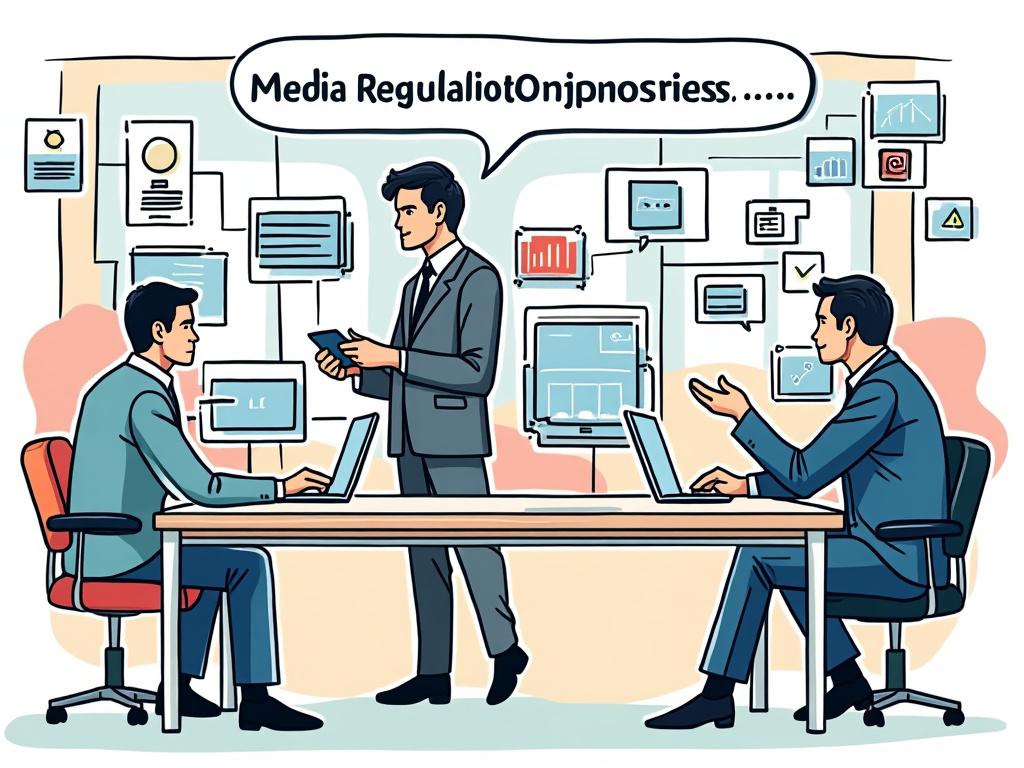
UAE Media Landscape: Outlets and Regulations
Reading time: 8 minutes
Ever wondered how the UAE manages to balance its ambitious global media presence with traditional values and regulatory oversight? You’re not alone. The Emirates has crafted one of the most dynamic yet controlled media environments in the Middle East, creating opportunities and challenges that every content creator, journalist, and media professional needs to understand.
Table of Contents
- The Media Regulatory Framework
- Major Media Outlets and Their Reach
- Digital Media Revolution
- Navigating Compliance Challenges
- Your Media Strategy Roadmap
- Frequently Asked Questions
The Media Regulatory Framework
Well, here’s the straight talk: The UAE’s media landscape operates under a sophisticated regulatory system that’s evolved dramatically over the past decade. The National Media Council (NMC), established in 2006, serves as the primary regulatory body, working alongside the Telecommunications and Digital Government Regulatory Authority (TDRA) to create a comprehensive oversight structure.
Key Regulatory Bodies and Their Functions
The regulatory ecosystem isn’t just about restrictions—it’s about creating a framework for responsible media growth. Here’s what you need to know:
- National Media Council: Oversees traditional media licensing, content standards, and strategic media development
- TDRA: Manages digital communications, internet regulations, and telecommunications infrastructure
- Dubai Media City Authority: Provides specialized licensing for international media companies
- Abu Dhabi Media Zone Authority: Offers alternative licensing pathways for content creators
Pro Tip: Understanding which authority governs your specific media activity can save months of regulatory confusion and costly compliance mistakes.
Content Guidelines and Restrictions
Quick Scenario: Imagine you’re launching a digital news platform. What content boundaries might you encounter? The UAE’s approach balances international media freedom with cultural sensitivity, creating specific guidelines around:
- Religious and cultural respect requirements
- Political commentary limitations
- Commercial advertising standards
- Data privacy and cybersecurity compliance
According to recent NMC statistics, 89% of media violations in 2023 related to content standards rather than licensing issues, highlighting the importance of understanding these guidelines upfront.
Major Media Outlets and Their Reach
The UAE’s media ecosystem spans from government-backed international broadcasters to innovative digital startups. Let’s break down the key players and their strategic positioning:
Traditional Media Powerhouses
| Outlet | Type | Reach | Language Focus | Regulatory Status |
|---|---|---|---|---|
| Al Arabiya | News Channel | 350M+ viewers | Arabic/English | Government-affiliated |
| Dubai One | Entertainment | Regional | English | State-owned |
| Gulf News | Print/Digital | 2.5M+ monthly | English | Private |
| The National | Print/Digital | International | English | Government-backed |
| Sharjah24 | Multi-platform | Regional | Arabic/English | Emirate-specific |
Case Study: Al Arabiya’s Global Expansion
Launched in 2003, Al Arabiya demonstrates how UAE-based media can achieve international influence while maintaining regulatory compliance. The network’s success stems from its strategic positioning as a moderate voice in regional politics, careful content curation that respects UAE guidelines, and substantial investment in digital infrastructure. Today, it reaches over 350 million viewers across 22 countries, showcasing the potential for UAE-based media to scale globally.
Digital Media Growth Metrics
The digital transformation has reshaped audience engagement patterns. Here’s a visual representation of UAE digital media consumption trends:
UAE Digital Media Consumption by Platform (2024)
Digital Media Revolution
The UAE’s digital media transformation represents more than technological advancement—it’s a strategic repositioning that’s creating new opportunities while introducing complex regulatory challenges.
Emerging Digital Platforms
Ready to transform complexity into competitive advantage? The digital landscape offers unprecedented opportunities for content creators and media entrepreneurs. Consider these emerging trends:
- Podcast Growth: 340% increase in Arabic podcast consumption since 2022
- Influencer Economy: AED 2.8 billion market value in 2024
- Live Streaming: 67% of UAE users engage with live content weekly
- Short-form Video: Average daily consumption of 78 minutes per user
Case Study: Anghami’s Regional Success
The Abu Dhabi-based music streaming platform exemplifies successful digital media navigation in the UAE. By securing proper licensing through ADGM, maintaining content standards that respect regional sensitivities, and leveraging local partnerships, Anghami became the first Arab tech company to list on NASDAQ. Their approach demonstrates how understanding UAE regulations can enable rather than restrict innovation.
Social Media Regulations
Social media regulations in the UAE have evolved to address cybercrime, misinformation, and digital rights while maintaining openness for business and creativity. Key compliance areas include:
- Cybercrime Law: Penalties for online harassment, fake news, and privacy violations
- Data Protection: GDPR-aligned requirements for user data handling
- Influencer Guidelines: Disclosure requirements for sponsored content
- Platform Responsibility: Content moderation expectations for social platforms
Navigating Compliance Challenges
Successful media operations in the UAE aren’t about perfection—they’re about strategic navigation of regulatory requirements while maintaining creative and commercial objectives.
Common Compliance Pitfalls
Challenge 1: Licensing Confusion
Many media entrepreneurs struggle with determining the correct licensing pathway. The UAE offers multiple licensing options through different free zones and mainland authorities, each with distinct requirements and benefits.
Solution: Start with a regulatory mapping exercise. Identify your content type, target audience, and distribution channels before approaching licensing authorities. Consider consulting with specialized media lawyers who understand the nuances of each jurisdiction.
Challenge 2: Content Standards Interpretation
Content guidelines can seem subjective, leading to uncertainty about what’s acceptable. This particularly affects international content creators unfamiliar with regional sensitivities.
Solution: Develop internal content review processes that incorporate cultural consultation. Many successful media companies employ cultural advisors or establish review committees that include local expertise.
Best Practices for Media Professionals
Practical Roadmap for Compliance Success:
- Regulatory Mapping: Document all applicable regulations for your specific media activities
- Content Framework: Establish clear editorial guidelines aligned with UAE standards
- Monitoring Systems: Implement regular compliance audits and content reviews
- Stakeholder Engagement: Maintain regular communication with relevant regulatory bodies
- Crisis Preparedness: Develop response protocols for potential compliance issues
According to industry expert Dr. Sarah Al-Mansouri, Director of Media Studies at the American University of Sharjah, “The most successful media operations in the UAE are those that view compliance not as a constraint, but as a framework for sustainable growth and regional credibility.”
Your Media Strategy Roadmap
The UAE media landscape is evolving rapidly, driven by Vision 2071’s emphasis on becoming a global media hub and the country’s commitment to digital transformation. Here’s your practical roadmap for navigating this dynamic environment:
Immediate Action Steps
1. Regulatory Audit and Alignment
Conduct a comprehensive review of your current or planned media activities against UAE regulations. Identify any gaps in licensing, content compliance, or operational requirements. This foundational step prevents costly corrections later and positions you for sustainable growth.
2. Digital-First Strategy Development
With 85% of UAE residents consuming digital media daily, prioritize digital channels while maintaining compliance standards. Focus on platforms that offer both reach and regulatory clarity, such as established social media channels with clear content policies.
3. Cultural Intelligence Integration
Develop content strategies that authentically engage with UAE’s multicultural audience while respecting local values. This approach not only ensures compliance but creates more meaningful audience connections that drive long-term success.
Long-term Strategic Positioning
The UAE’s media future will be shaped by several key trends: increased AI integration in content creation, expansion of Arabic digital content, and growing emphasis on sustainability reporting. Media professionals who position themselves at the intersection of these trends while maintaining regulatory compliance will find significant opportunities.
Consider this: As the UAE prepares to host COP28 and continues its space exploration initiatives, demand for specialized content creators who can navigate both technical complexity and cultural sensitivity will only increase. Are you positioning your media capabilities to serve these emerging markets?
The regulatory framework that might seem challenging today is actually creating a foundation for sustainable, credible media operations that can compete globally. By mastering UAE compliance now, you’re not just avoiding problems—you’re building competitive advantages that will serve you as the region’s media influence continues to expand internationally.
Frequently Asked Questions
What licenses do I need to start a digital media company in the UAE?
The licensing requirements depend on your business activities and location. For digital media companies, you typically need a trade license from either a free zone authority (like Dubai Media City or Abu Dhabi Global Market) or mainland authorities. Content creators may also require specific media licenses from the National Media Council. Free zone licenses offer advantages like 100% foreign ownership and tax benefits, while mainland licenses provide broader market access. Consult with a business setup advisor to determine the best option for your specific situation.
How strict are content regulations for social media influencers in the UAE?
Content regulations for influencers focus primarily on disclosure requirements, avoiding offensive content, and respecting cultural sensitivities rather than strict censorship. Influencers must clearly label sponsored content, avoid promoting illegal activities, and refrain from content that could be considered defamatory or culturally insensitive. The UAE’s approach is generally business-friendly, with most violations resulting in warnings rather than immediate penalties. However, serious violations like spreading false information or engaging in cyberbullying can result in significant fines and legal action.
Can international media companies operate freely in the UAE?
International media companies can operate in the UAE with proper licensing and compliance frameworks. Many global media giants like CNN, BBC, and Reuters have successful operations in the UAE. The key is obtaining appropriate licenses through designated media free zones, adhering to content guidelines, and maintaining regular compliance reviews. While there are content standards to respect, the UAE actively encourages international media presence as part of its strategy to become a global media hub. The regulatory environment is designed to enable business growth while maintaining cultural and social stability.

Article reviewed by Beatriz Santos, Family Office Director | Aligning Wealth with Values, on June 4, 2025


